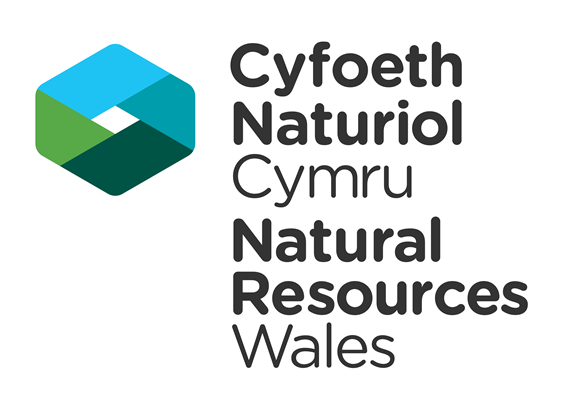
13 Mar 2024
NRW share new guidance for changes to felling licences in Wales

NR-03-RP- AS
Natural Resources Wales (NRW) has today (13 March) published guidance on new powers under the Forestry Act, which will allow the environmental body to condition, amend, suspend, or revoke a felling licence in Wales. These powers will also allow licence holders to apply to NRW to amend their licence.
The new powers, which come in to effect from 1 April 2024, will allow NRW to provide better protection for wildlife and the environment during felling operations.
The previous Forestry Act 1967, did not allow conditions to be added to felling licences that would help to ensure the integrity of protected sites, protected species, or other sensitive elements of the environment.
This may have led to a felling licence being granted that may have negatively impacted the environment and could have contravened other environmental legislation, such as the Conservation of Habitats and Species Regulations 2017.
Under the previous Forestry Act, NRW also had no powers to amend, suspend or revoke a licence that had been granted, in the event that something about that licenced activity became unacceptable (for example a forestry disease affecting a species choice in restocking)
The new amendments will help to formalise compliance with felling licence conditions and address inconsistencies within the current legislation.
The new guidance sets out the conditions and will provide felling licence applicants with more information on the implementation. It is available to view here:
Natural Resources Wales / Woodlands and forests
The new powers are similar to the powers already held by the forestry authorities in Scotland.
Stephen Attwood, Regulatory Team Leader for Natural Resources Wales said:
“We’re really pleased to be able share the publication of the guidance today, which will help us to better safeguard habitats and species in Wales and provide protection from environmental damage during felling operations.
“Throughout the process of developing the guidance, it was important to us that we were engaging with the forestry industry and our stakeholder group, and we would like to thank them for their feedback throughout this process which has been invaluable.
“Many applicants who apply for a felling licence with us do not have a professional forestry background. The addition of these conditions have brought the standards that are required to protect the environment in line with existing UK Forestry Standard and all relevant Environmental Legislation, making it clearer and easier to understand.”
Minister for Climate Change, Julie James said
"I would like to thank all those who have helped to develop this practical guidance.
“The new guidance sets out the measured approach that NRW will take to the use of these new powers which are important in the better protection of wildlife and the environment during felling operations.”
You can check to see whether you need a felling licence on NRWs website: Natural Resources Wales / Check if you need a tree felling licence
---------------------------------------------------
CNC yn rhannu canllawiau newydd ar gyfer newidiadau i drwyddedau cwympo coed yng Nghymru
Heddiw (13 Mawrth) mae Cyfoeth Naturiol Cymru (CNC) wedi cyhoeddi canllawiau ar bwerau newydd o dan y Ddeddf Coedwigaeth, a fydd yn caniatáu i’r corff amgylcheddol bennu amodau, diwygio, atal neu ddirymu trwyddedau cwympo coed yng Nghymru. Bydd y pwerau hyn hefyd yn caniatáu i ddeiliaid trwydded wneud cais i CNC i ddiwygio eu trwydded.
Bydd y pwerau newydd, a ddaw i rym ar 1 Ebrill 2024, yn caniatáu i CNC ddiogelu bywyd gwyllt a’r amgylchedd yn well yn ystod gwaith cwympo coed.
Nid oedd y ddeddf flaenorol, Deddf Coedwigaeth 1967, yn caniatáu ychwanegu amodau at drwyddedau cwympo coed a fyddai’n helpu i sicrhau cyfanrwydd safleoedd a warchodir, rhywogaethau a warchodir, neu elfennau sensitif eraill o’r amgylchedd.
Gallai hyn fod wedi arwain at roi trwydded cwympo coed a allai fod wedi cael effaith negyddol ar yr amgylchedd ac a allai fod wedi mynd yn groes i ddeddfwriaeth amgylcheddol arall, megis Rheoliadau Cadwraeth Cynefinoedd a Rhywogaethau 2017.
O dan y Ddeddf Goedwigaeth flaenorol, nid oedd gan CNC ychwaith unrhyw bwerau i ddiwygio, atal neu ddirymu trwydded a oedd wedi’i rhoi, pe bai rhywbeth am y gweithgaredd trwyddedig hwnnw’n dod yn annerbyniol (er enghraifft clefyd coedwigaeth yn effeithio ar y dewis o rywogaeth wrth ailstocio).
Bydd y diwygiadau newydd yn helpu i ffurfioli cydymffurfiaeth ag amodau trwyddedau cwympo coed ac yn mynd i’r afael ag anghysondebau o fewn y ddeddfwriaeth bresennol.
Mae’r canllawiau newydd yn cyflwyno’r amodau a byddant yn rhoi mwy o wybodaeth i’r rhai sy’n gwneud cais am drwydded cwympo coed ynghylch sut cânt eu gweithredu. Maent ar gael i’w gweld yma:
Cyfoeth Naturiol Cymru / Coetiroedd a fforestydd (naturalresources.wales)
Mae’r pwerau newydd yn debyg i’r pwerau sydd eisoes gan awdurdodau coedwigaeth yn yr Alban.
Meddai Stephen Attwood, Arweinydd Tîm Rheoleiddio Cyfoeth Naturiol Cymru:
“Rydyn ni’n falch iawn o allu rhannu cyhoeddiad y canllawiau heddiw, a fydd yn ein helpu i ddiogelu cynefinoedd a rhywogaethau yng Nghymru yn well ac yn diogelu rhag difrod amgylcheddol yn ystod gwaith cwympo coed.
Drwy gydol y broses o ddatblygu’r canllawiau, roedd yn bwysig i ni ein bod yn ymgysylltu â’r diwydiant coedwigaeth a’n grŵp rhanddeiliaid, a hoffem ddiolch iddynt am eu hadborth drwy gydol y broses hon sydd wedi bod yn amhrisiadwy.
Mae llawer o’r rhai sy’n gwneud cais am drwydded cwympo coed gyda ni heb gefndir coedwigaeth proffesiynol. Mae ychwanegiad yr amodau hyn wedi gwneud y safonau sy’n ofynnol ar gyfer diogelu’r amgylchedd yn gydnaws â Safon Coedwigaeth bresennol y DU a’r holl Ddeddfwriaeth Amgylcheddol berthnasol, gan eu gwneud yn gliriach ac yn haws i’w deall.”
Dywedodd y Gweinidog Newid Hinsawdd, Julie James
"Hoffwn ddiolch i bawb sydd wedi helpu i ddatblygu’r canllawiau ymarferol hyn.
Mae’r canllawiau newydd yn nodi’r dull pwyllog y bydd CNC yn ei ddefnyddio i arfer y pwerau newydd hyn, sy’n bwysig i warchod bywyd gwyllt a’r amgylchedd yn well yn ystod gwaith torri coed.”
Gallwch wirio a oes angen trwydded cwympo coed arnoch ar wefan CNC: Cyfoeth Naturiol Cymru / Gwiriwch a oes angen i chi gael trwydded gwympo coed
Contact Information
Communications Team
Natural Resources Wales
communications@naturalresourceswales.gov.uk
Notes to editors
Notes to editors
- The changes to the Forestry Act (1967) sit under the new Agricultural (Wales) Act 2023.
- The felling of trees is regulated by the Forestry Act 1967 and administered by Natural Resources Wales (NRW).
- Before felling any trees, it’s important that you check if you need a licence from to do so
- It is an offence to fell licensable trees without having obtained a felling licence or other valid permission. Changes to the Forestry act 1967 increased the penalty for felling without a felling licence to an unlimited fine. This applies to everyone involved in the felling of trees, for example the owner, agent, timber merchant or contractor.
- NRW offers advice and guidance around felling to make sure people follow best practice, remain within the law and to ensure Wales woodlands and forests are protected for the future.
- Guidance for felling licence applications in Wales has been published on the Natural Resources Wales website in preparation for the 1 April implementation. This guidance will set out the conditions and will provide felling licence applicants with more information on the implementation.
- The Agriculture (Wales) Act 2023 provided the legislative consultation route for Wales to consider amendments to the Forestry Act 1967. Welsh Government led a formal consultation on these amendments under the Agriculture (Wales) Act 2023 umbrella.
---------
Nodiadau i olygyddion
- Mae’r newidiadau i’r Ddeddf Coedwigaeth (1967) yn dod o dan y Ddeddf Amaethyddiaeth (Cymru) newydd 2023.
- Mae gwaith cwympo coed yn cael ei reoleiddio gan Ddeddf Coedwigaeth 1967 a’i weinyddu gan Cyfoeth Naturiol Cymru (CNC).
- Cyn cwympo unrhyw goed, mae’n bwysig eich bod yn gwirio a oes angen trwydded arnoch i wneud hynny.
- Mae’n drosedd cwympo coed trwyddedadwy heb gael trwydded gwympo neu ganiatâd dilys arall. Golygodd newidiadau i Ddeddf Coedwigaeth 1967 fod y gosb am gwympo coed heb drwydded gwympo wedi cael ei chynyddu i ddirwy ddiderfyn. Mae hyn yn berthnasol i bawb sy’n ymwneud â chwympo coed, er enghraifft y perchennog, asiant, masnachwr coed neu gontractwr.
- Mae CNC yn cynnig cyngor ac arweiniad ynghylch cwympo coed er mwyn sicrhau bod pobl yn dilyn arferion gorau ac yn cadw o fewn y gyfraith, ac er mwyn sicrhau bod coetiroedd a choedwigoedd Cymru yn cael eu gwarchod ar gyfer y dyfodol.
- Mae canllawiau ar gyfer ceisiadau am drwyddedau cwympo yng Nghymru wedi’u cyhoeddi ar wefan Cyfoeth Naturiol Cymru wrth baratoi ar gyfer 1 Ebrill. Bydd y canllawiau hyn yn cyflwyno’r amodau a byddant yn rhoi mwy o wybodaeth i’r rhai sy’n gwneud cais am drwydded cwympo coed ynghylch sut cânt eu gweithredu.
- Deddf Amaethyddiaeth (Cymru) 2023 a roddodd y llwybr ymgynghori deddfwriaethol er mwyn i Gymru ystyried diwygiadau i Ddeddf Coedwigaeth 1967. Arweiniodd Llywodraeth Cymru ymgynghoriad ffurfiol ar y diwygiadau hyn o dan ymbarél Deddf Amaethyddiaeth (Cymru) 2023.

